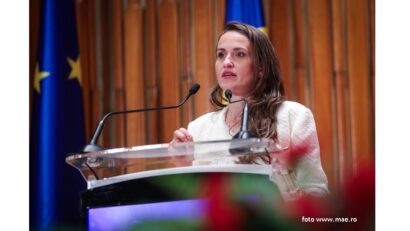New university years starts in Romania
Each faculty can decide whether to hold online or in person courses.

Daniela Budu, 03.10.2022, 13:52
Around 500,000 students have started university courses in Romania, without an education minister in office, without a new education law and without any university among the best 100 universities in the world. Sorin Cimpeanu has recently left the education minister office amid a scandal sparked by accusations of plagiarism against himself and the serving PM, Nicolae Ciuca. Under these circumstances, the new draft education law for higher education and the programme known as “Educated Romania are uncertain. The latter, intended to profoundly change the university system in Romania, has not even reached Parliament for debate. Moreover, the amendments to the project, following public debate, are unknown.
Against this background, the National Students Council has asked President Klaus Iohannis and PM Nicolae Ciuca to appoint a new education minister, who has integrity, whose professional competencies are beyond doubt, who can keep away from any political interference and who can understand the need for a “real and “courageous reform.
The need of a thorough reform of the education system was also expressed by President Klaus Iohannis at the opening ceremony of the new university year held at the University of Architecture in the capital city. There must be zero tolerance to plagiarism, he said.
In his turn, the PM said higher education is on the Governments priority list and explained that the Romanian education system is going through a process of profound change, and that the modifications brought to the education laws reflect a “vision oriented towards the future. Until then, however, students must deal with the everlasting financial problems, with that of insufficient accommodation places in university camps and the lack of subsidies for transportation.
In terms of course schedule, it differs from one university to another and is decided independently by each of them. The faculties of the Bucharest University, for instance, will hold most courses in person, but online courses are also allowed on condition they do not exceed 25% of the total. In terms of structure, the first semester ends on February 26 next year, and includes two holidays, an exam session and a reexamination session. The second semester starts on February 27, 2023 and ends in July, depending on the exam sessions and internship schedule. Students who opted for distance learning, will have the same courses as the others, but in addition they will have classes on weekends and fewer course hours. As for the students favorite universities, the Bucharest University and the Polytechnic University in the capital city are on top of their preferences. (EE)






























